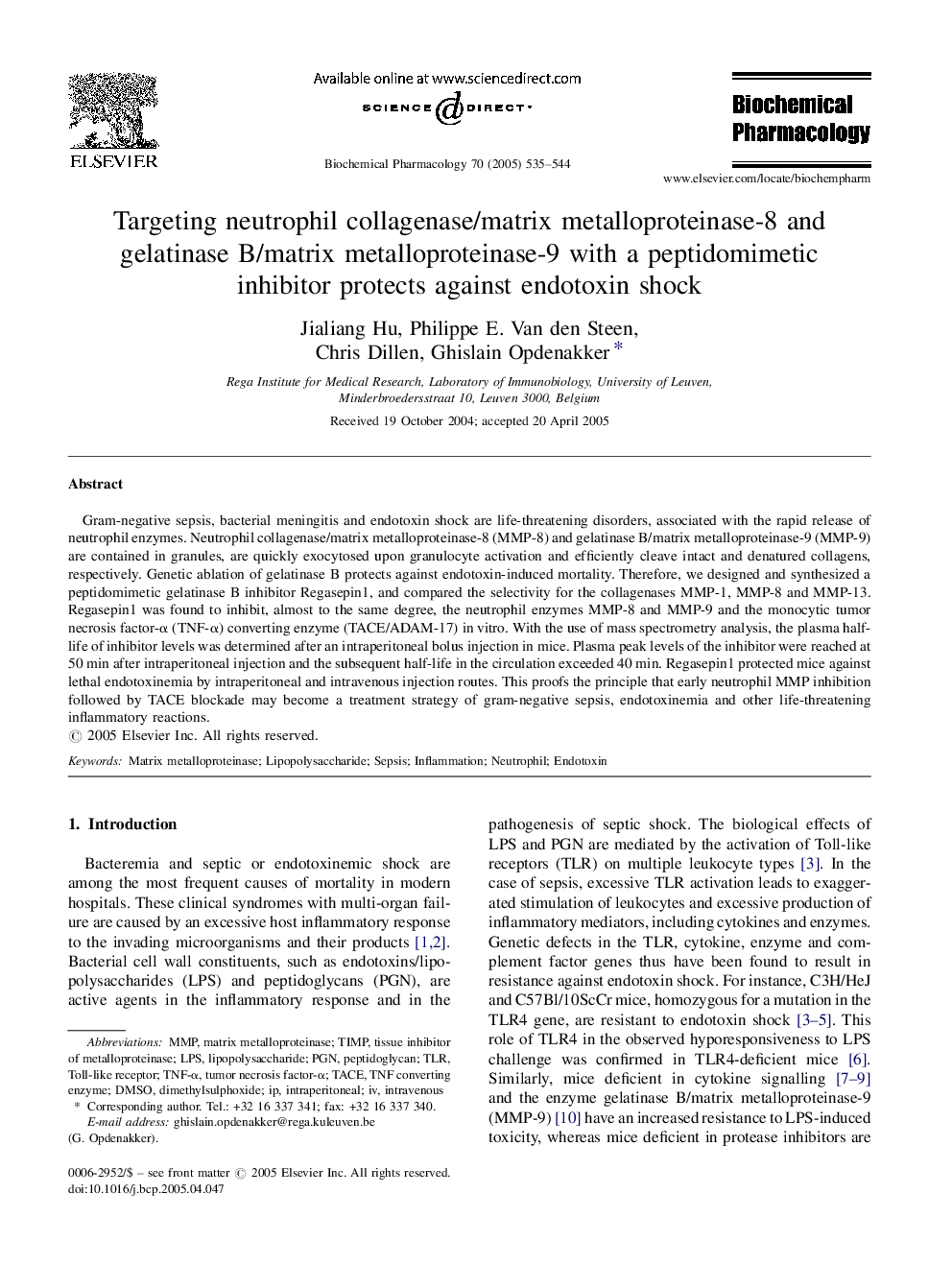| Article ID | Journal | Published Year | Pages | File Type |
|---|---|---|---|---|
| 9001809 | Biochemical Pharmacology | 2005 | 10 Pages |
Abstract
Gram-negative sepsis, bacterial meningitis and endotoxin shock are life-threatening disorders, associated with the rapid release of neutrophil enzymes. Neutrophil collagenase/matrix metalloproteinase-8 (MMP-8) and gelatinase B/matrix metalloproteinase-9 (MMP-9) are contained in granules, are quickly exocytosed upon granulocyte activation and efficiently cleave intact and denatured collagens, respectively. Genetic ablation of gelatinase B protects against endotoxin-induced mortality. Therefore, we designed and synthesized a peptidomimetic gelatinase B inhibitor Regasepin1, and compared the selectivity for the collagenases MMP-1, MMP-8 and MMP-13. Regasepin1 was found to inhibit, almost to the same degree, the neutrophil enzymes MMP-8 and MMP-9 and the monocytic tumor necrosis factor-α (TNF-α) converting enzyme (TACE/ADAM-17) in vitro. With the use of mass spectrometry analysis, the plasma half-life of inhibitor levels was determined after an intraperitoneal bolus injection in mice. Plasma peak levels of the inhibitor were reached at 50 min after intraperitoneal injection and the subsequent half-life in the circulation exceeded 40 min. Regasepin1 protected mice against lethal endotoxinemia by intraperitoneal and intravenous injection routes. This proofs the principle that early neutrophil MMP inhibition followed by TACE blockade may become a treatment strategy of gram-negative sepsis, endotoxinemia and other life-threatening inflammatory reactions.
Keywords
Related Topics
Health Sciences
Pharmacology, Toxicology and Pharmaceutical Science
Pharmacology
Authors
Jialiang Hu, Philippe E. Van den Steen, Chris Dillen, Ghislain Opdenakker,
